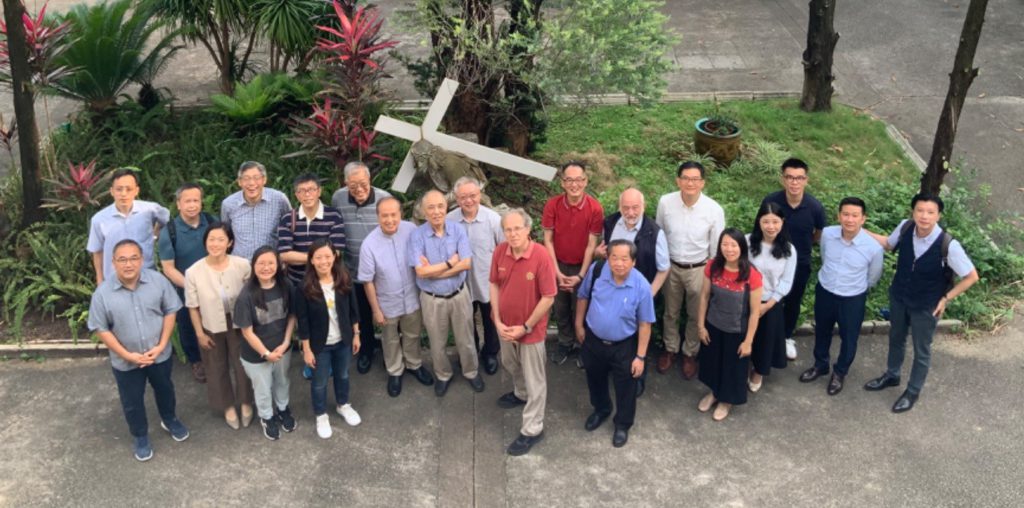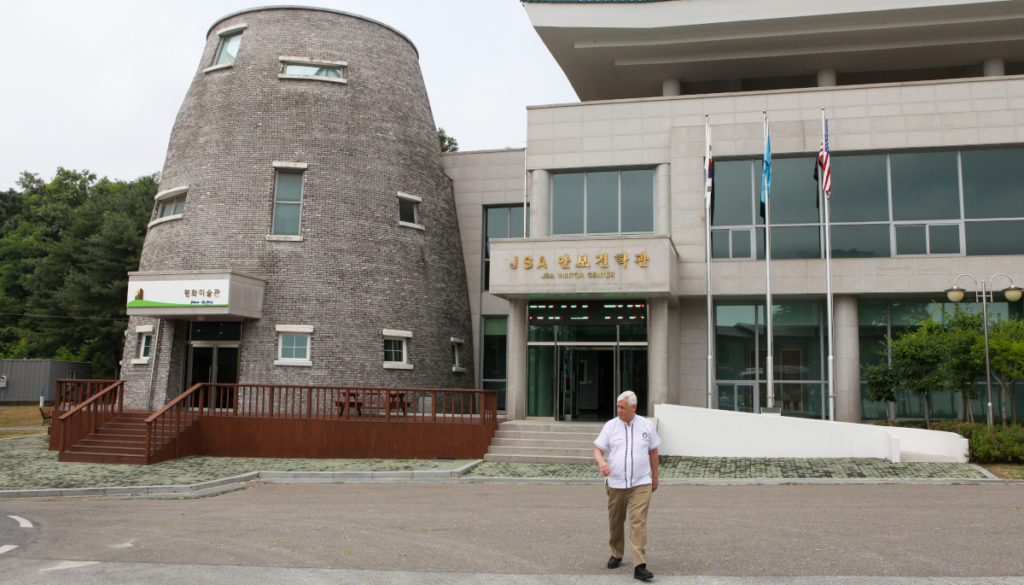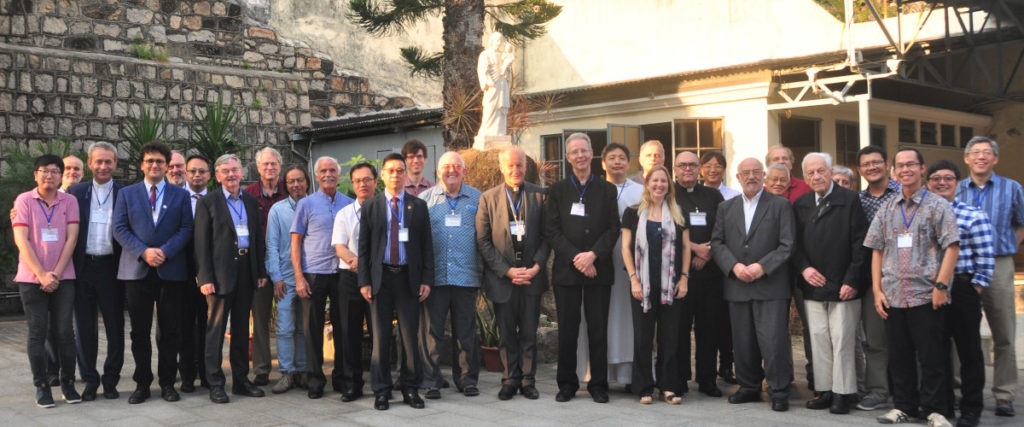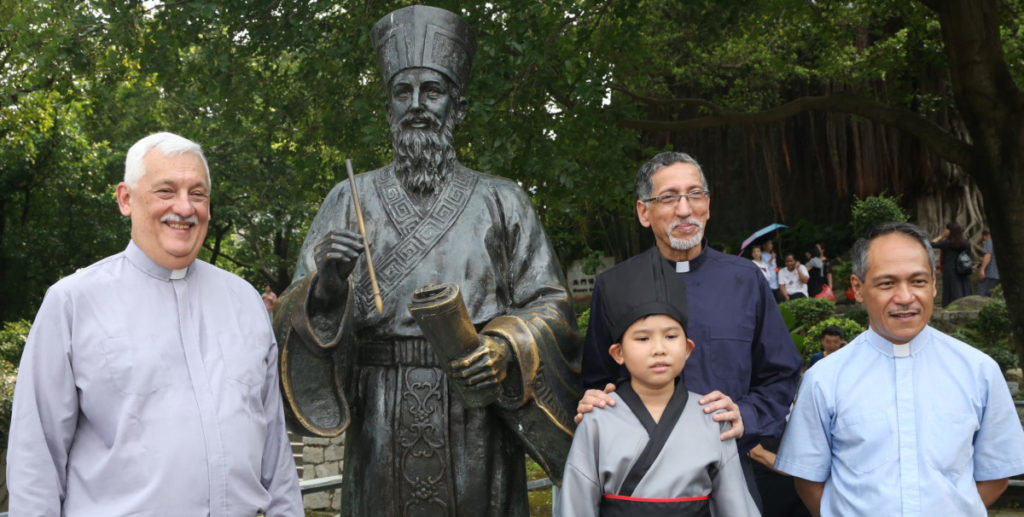On May 22, 2023, a total of 23 Directors of Work and collaborators from Hong Kong and Macau met at the Jesuit Community residence in Macau for a day of getting to know each other, personal reflections, and sharing. Continue reading “Directors Of Work Meeting at Jesuitas (Macau)”
Directors Of Work Meeting at Jesuitas (Macau)
Traveling the long road to peace and reconciliation
“The past,” Faulkner warned “is never dead”, nor is it really past. Until we break down the barrier of division and fear that goes back many generations, no new bridges of hope can be built. Ever since General Congregations 35 and 36, the Society of Jesus has made reconciliation a key message. It is the theme that brought Fr General Arturo Sosa to Asia in the summer of 2019.
Continue reading “Traveling the long road to peace and reconciliation”
In Actione Comtemplativus – Contemplation, Mission and Martyrdom
To celebrate its 20th anniversary, the Ricci Institutes of Macau and Taipei, and the University of St Joseph Macau hosted a remarkable two-day symposium in Macau titled, “In Actione Comtemplativus – Contemplation, Mission and Martyrdom” from October 17 to 18.
It was a remarkable gathering of people and presentations. To mention only a few points of greatness: the topics, discussions and the personal sharing among participants combined to create a community of trust where group and personal reflections on apostolic mission were shared and reverenced. Through the depth of the presentations and the sharing they triggered, we were invited to go deeper in locating our personal sense of mission and Christ’s presence within; how the faith of the community anchors our sense of hope in a deeply troubled world; and how the lives of martyrs could offer inspiration and rekindle our commitment to a faith that does justice.
When I first learned of the title of the symposium – Contemplation, Mission and Martyrdom – I wondered how martyrs would be integrated into the well-established Jesuit dynamic of contemplation-in-action. Mid-morning through the first plenary session, I had my answer in Gerhard K Becker’s presentation, “Spiritual leadership in hard times: Karl Rahner and Alfred Delp”. Prof Becker led us through the life, ministry, capture, trial and martyrdom of Jesuit Fr Alfred Delp by the Nazis. Through Fr Delp’s memoirs and letter, he teased out the inner struggles of a man dedicated to justice by speaking the truth to power during a time when Germany was encompassed by hateful tyrannical leadership. Through a glimpse into Fr Delp’s ability to stand up to accusations of state betrayal and strengthened by his contemplative Christian commitment, we could look at ourselves, our past, our motivations and to think about how we affect the people around us. We were encouraged to look more deeply into the sources of our own faith and hope.
Prof Becker noted that Jesuit theologian Fr Karl Rahner was a contemporary and friend of Alfred Delp. In Rahner’s reflections on martyrdom and Christian commitment, he referred to Delp’s life and character, and points out his mystical view of God’s action in the world. Rahner was on to something of importance when he wrote in the 1960s, “The Christian of the future will be a mystic or will not exist at all”. We recognise that that future is now.
Then came Dennis McCann on the martyred Dietrich Bonhoeffer’s struggles with the Christian commitment to peace and the violent over through of Hitler, and Joseph Lee Tse-Hei on the Chinese Christian martyr Watchman Nee. These presentations, too, invited us to reflect on the motivations behind these Christian martyrs – often conflicted and unclear even to themselves – and to see what their struggles and ultimate sacrifice mean to us today.
Between the plenary sessions were many smaller group sessions of varied topics touching on contemplation, martyrdom, prayer, discernment and decision making, obedience, community building, etc. I regretted I could not attend them all.
It is impossible to write of all the excellent sessions, large and small, over the two days. I feel it important to share something of the presentation by Jesuit Fr Martin Maier, working in Brussels at the Jesuit European Social Center. Fr Maier, during an extended period of research, lived with the six Jesuits and their cook and her daughter, who would be martyred because of their commitment to a life dedicated to seeking a just solution to the long civil war in El Salvador. He spoke tenderly of his friendship with these men, their intelligence and contemplative spirit. He spoke of the meals their murdered cook had prepared for him. Similarly, Jesuit Fr Paul John Wang, a Chinese graduate student in leadership at Gonzaga University in Washington State, USA, reflected on the Salvadorian Martyrs. He highlighted their contemplation of the signs of the times in El Salvador and how their total dedication to their mission of justice led to their martyrdom.
At the symposium’s final review, we recognised that we enjoyed the formation of a holy space that nurtured us in a community of learning, reflection and prayer. Someone commented, “What Rahner said, that Christians of the future would need to live as mystics, is what happened for us here. We leave this symposium knowing that the Holy Spirit has hovered over us.”
Fr Julio Giulietti SJ is a Fellow at the Georgetown University Berkley Center for Religion, Peace and World Affairs, and living in Vietnam for 10 years.
A heart that inspires other hearts
As part of Fr General Arturo Sosa’s trip to the Chinese Province, he visited Macau on July 18 to 19. Macau is an autonomous region on the south coast of China, across the Pearl River Delta from Hong Kong. With a population of 700,000 and an area of 32.9 sq km (12.7 sq mi), it is the most densely populated region in the world. Originally a sparsely populated collection of coastal islands, the territory has become a major resort city and the top destination for gambling tourism. It is the ninth-highest recipient of tourism revenue and its gaming industry is seven times larger than that of Las Vegas.
The Society of Jesus has been present in Macau from the very beginning of its own history (having been formally established in Rome in 1540), and equally from the beginning of the historical role played by the small city of Macau. St Paul’s College founded by the Jesuits in 1594 and was operative for 168 years until 1762 when the Jesuits were expelled in Macau, extended the Society’s influence beyond the city walls inside China and farther afield. During these years, 665 young Jesuits completed their formation in the College.
On the first day, Fr General Sosa accompanied by his Regional Assistants Fr Vernon D’Cunha SJ for South Asia and Fr Jojo Magadia SJ for Asia Pacific, and Fr Pierre Bélanger SJ of the Jesuit Communication team in Rome had a meeting with lay collaborators in Colegio Estrela do Mar, one of the two Jesuit schools in Macau. Around 60 people came from different social apostolates: Christian Life Community, Magis youth ministry, Macau Ricci Institute, Casa Ricci Social Services and representatives of the two schools, Colegio Estrela do Mar and Colegio Mateus Ricci. Fr General shared with them the Universal Apostolic Preferences.
The next day, Fr General visited the other Jesuit school in Macau. He addressed the primary and secondary students of Colegio Mateus Ricci at their graduation ceremonies. “You are still so young, but you carry in you the future of this world”, he said. “As you come to the end of this academic year, and begin your vacation, I invite you to think about how you can help others in new ways that you have not yet tried before.” Fr Sosa prayed for the children to have “the strength to be daring and hopeful, not for yourselves, but for the world, and for the future”.
After his brief commencement address, Fr General blessed two statues of St Ignatius in the school’s complex and visited St Anthony Church, the oldest church in Macau built by the Jesuits around 1560. Nowadays the church is served by the Korean Martyrs Congregation.
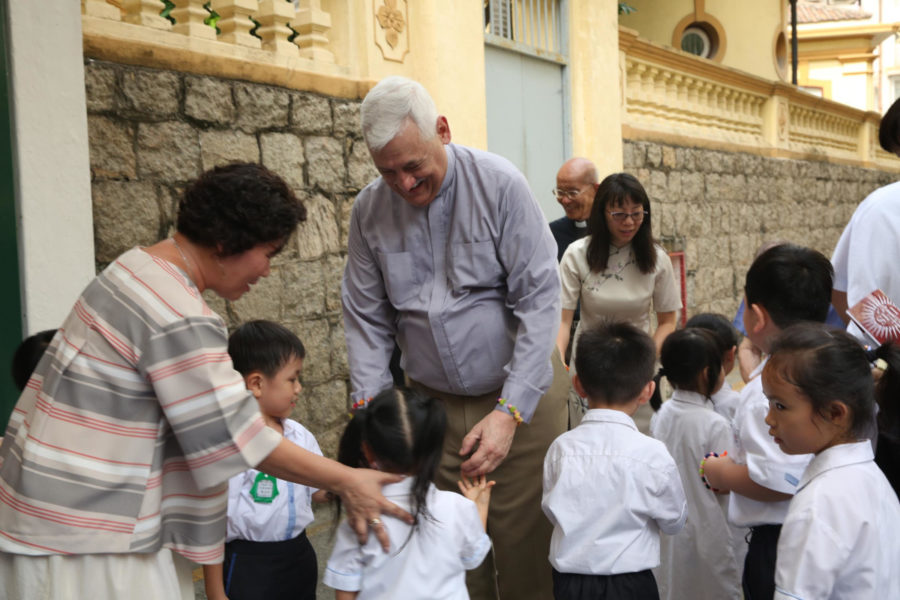 Fr General also met and greeted the staff of Casa Ricci Social Services and Macau Ricci Institute. He also had an opportunity to meet the Jesuit community in Macau. The short trip was closed by the Thanksgiving Mass for 70 years in the Society of Jesus of Fr Yves Camus SJ and 50 years in the Society of Fr Luis Sequeira SJ and Gregory Koay SJ.
Fr General also met and greeted the staff of Casa Ricci Social Services and Macau Ricci Institute. He also had an opportunity to meet the Jesuit community in Macau. The short trip was closed by the Thanksgiving Mass for 70 years in the Society of Jesus of Fr Yves Camus SJ and 50 years in the Society of Fr Luis Sequeira SJ and Gregory Koay SJ.
The experience of Fr General’s visit, albeit only brief, remains in the hearts of the many lay collaborators and Jesuits in Macau. His message in his homily during the thanksgiving Mass resonated not just with the three jubilarians but with each of us. “They have taught many young people; they have preached many homilies and touched many lives; they have accompanied searchers for the will of God through the Spiritual Exercises of St Ignatius. They have lived as missionaries, offering themselves faithfully as Jesuits”, said Fr General.
“Yet, today’s thanksgiving Mass is not just about them. It is first and foremost about a God who started it all, a God who loved first and called these three Jesuits to follow him, a God who has given them the grace to respond to His call with great zeal. This is the same God that invites each of us today. He offers his life freely, to show us what it means to love the way god loves – without counting the cost, without heeding the wounds, without seeking for any reward.”
Thirty years of serving at the frontiers of humanity
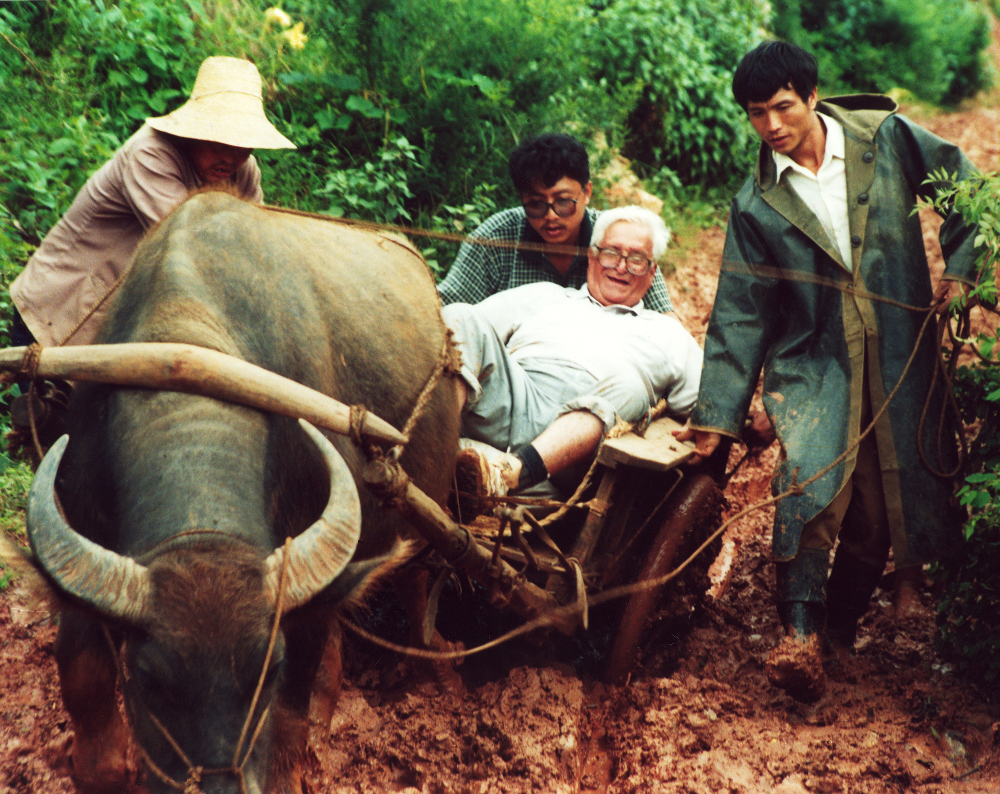
Thirty years ago, a 74-year-old Spanish Jesuit priest had his first encounter with a community of persons affected by leprosy in China. Moved by the terrible situation of the leprosy-affected persons in Taikam Island in Guangdong Province, Fr Luis Ruiz SJ decided to work with local governments and church communities to change the conditions of leprosy patients in China. That was the beginning of Ricci Social Services, a social service network created to bring relief, dignity and social justice to the poor and marginalised people in mainland China and Macau.
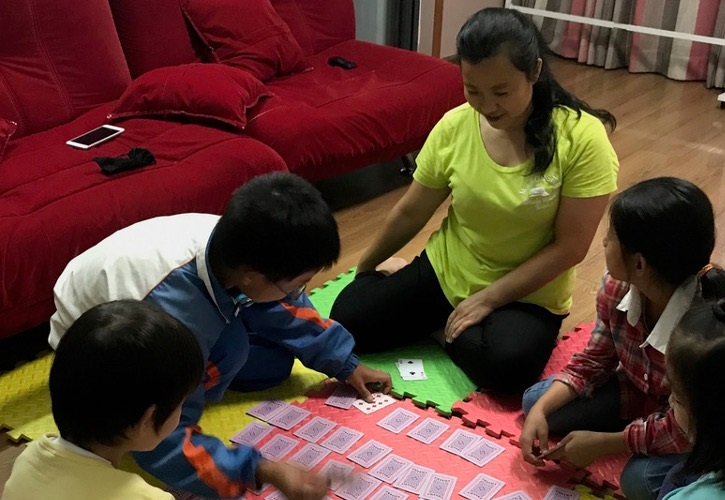
Since then, Ricci Social Services has journeyed far and wide in China, going to the remotest places to be with and serve persons and communities in need of solidarity, healing, friendship and support.
“The ones who opened the door to us were not business persons, the powerful or the learned, but persons affected by leprosy and those living with HIV/AIDS,” shared Ricci Social Services Director Fr Fernando Azpiroz SJ. “It was because of them that more than 50 local governments from more than10 provinces invited Ricci Social Services to go to their places, to serve them in their needs.”
Today, Ricci Social Services collaborates in more than 40 programmes in 10 provinces that serve around 5,000 people, including adults and children affected by leprosy or living with HIV/AIDS, women at risk (such as sex workers), or people dying without support in the hospitals. These programmes are organised as a network of “communities of solidarity”.
“These are communities where people learn how to overcome discrimination; communities where physical, psychological and social wounds are healed, where dignity is affirmed, and where communion is restored and re-created among individuals, their communities and their relationships with their natural environments,” said Fr Azpiroz.
In these communities, more than 80 religious sisters and volunteers live with patients or people who suffer from discrimination, serving them in their needs, joining them in their daily struggles and learning from them.
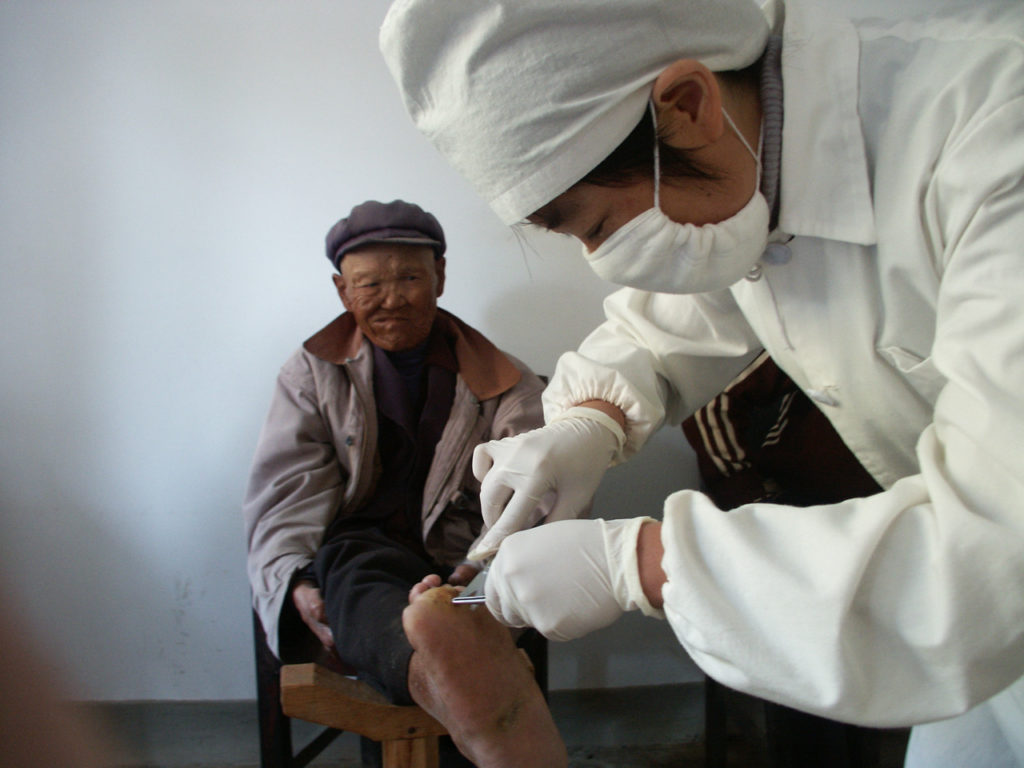
“This has been a journey to our personal limits as well, far away from our comfort zones,” said Fr Azpiroz, sharing that in many places, they suffered from lack of understanding and discrimination from the local people; lack of water, electricity or roads; tests, sicknesses, and even death. In 2008, one of the religious sisters, Sister Xue, died in an accident while serving her leprosy-affected patients.
“But our reward has been far bigger than all the efforts we have made during these 30 years, a reward that only those who love can understand because love transforms everybody and everything,” said Fr Azpiroz.
Fr Azpiroz explains that love enables receivers to become givers, and givers to become receivers. This is why three decades later, the same impulse to love has brought them to more new frontiers, serving women at risk, children living with HIV/AIDS, poor and dying patients in public hospitals, and helping almost 25 different local social service communities to build their capacities to serve more and better. This same love has also pushed them to do more in terms of ecological justice in China. “We would like to help people to change their ways of living, consuming and producing, in order to do justice to nature and our future generations,” he said.
But love is also and always an invitation for others to collaborate. “We are not doing all these alone. This is the fruit of working together with thousands of benefactors, hundreds of sisters, volunteers and staff workers, hundreds of government officials, partners. We are the beneficiaries of all their love and support,” said Fr Azpiroz.
This has been the daily experience of Ricci Social Services throughout its 30-year journey in China; the experience of a love that is incarnated and shared, and that has transformed and continues to transform thousands of people. The mystery of a love that took flesh to become Emmanuel, God with us.

